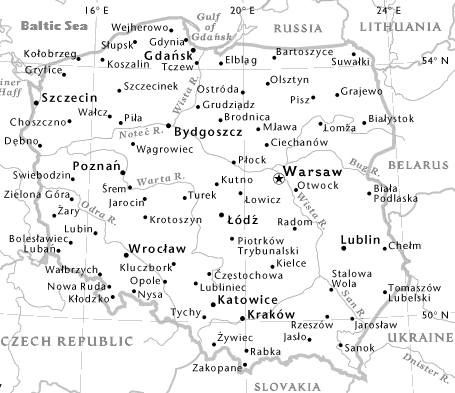Area
Population
Religion
Language
Literacy
Life Exp.
![]() Buffered by the Baltic Sea in the north and
the Carpathian Mountains in the south, Poland enjoys no such natural protection
to the east and west. Nazi Germany invaded in 1939 and built the Auschwitz
concentration camp, where 1.35 million Jews and more than 100,000 others
were murdered. After World War II Joseph Stalin seized a chunk of eastern
Poland for the Soviet Union.
Buffered by the Baltic Sea in the north and
the Carpathian Mountains in the south, Poland enjoys no such natural protection
to the east and west. Nazi Germany invaded in 1939 and built the Auschwitz
concentration camp, where 1.35 million Jews and more than 100,000 others
were murdered. After World War II Joseph Stalin seized a chunk of eastern
Poland for the Soviet Union.
Communists took power in 1947 but did not win Poles away from Roman Catholicism. In 1980 soaring prices and tumbling wages spawned Solidarity, the Eastern bloc's first free-trade union. In 1989, Solidarity swept Poland's first free elections in more than 40 years and began moving the U.S.S.R.'s largest, most populous satellite toward democracy and free enterprise.
Faced with triple-digit inflation, Poland in 1990 introduced a bold economic reform plan. Eventually, the economy began a solid recovery. By 1997, the inflation rate had dropped to 14.5 percent, and unemployment rates had stabilized.
